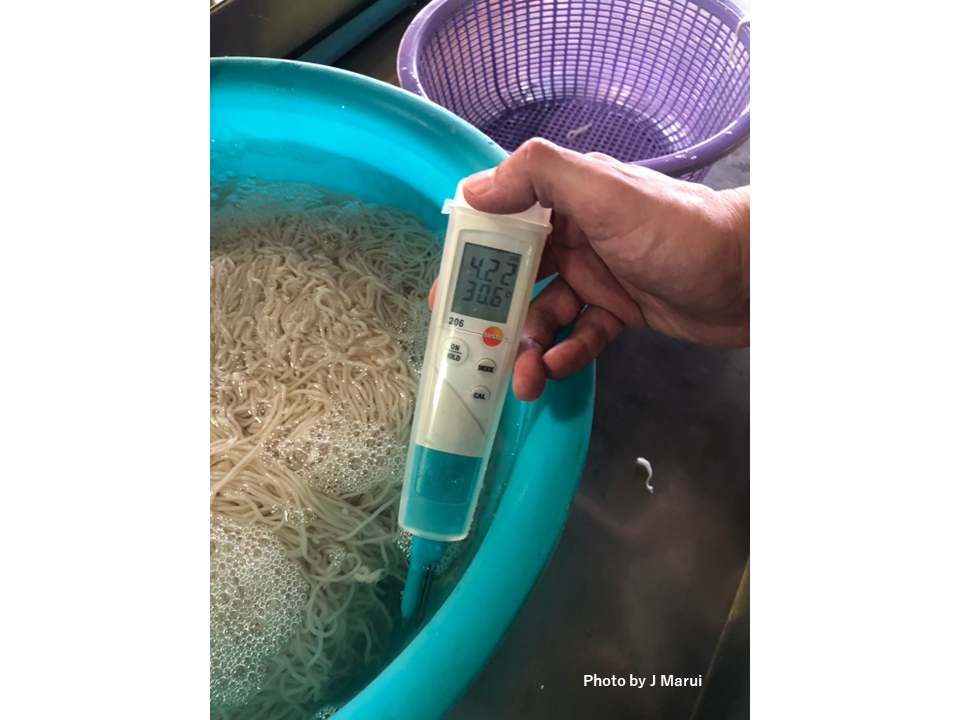Pick Up
1034. World Food Safety Day

1034. World Food Safety Day
June 7 is World Food Safety Day.
Safe food is essential for human beings to live a healthy and prosperous life. Every year, 1 in 10 people around the world gets sick because of unsafe food. World Food Safety Day is established to raise awareness of food safety among all people and encourage them to take action to prevent foodborne diseases.
Access to adequate quantities of safe food is key to sustaining life and promoting health. Foodborne diseases are usually infectious or toxic in nature and are caused by bacteria, viruses, parasites, or chemicals that enter the body through contaminated food or water and are often invisible to the naked eye.
Food safety plays an important role in ensuring food safety at every stage of the food chain, from production to harvesting, processing, storage, distribution, cooking, and consumption.
JIRCAS has been developing technical solutions for traditional foods in Southeast Asia that lead to improved food safety by making full use of scientific knowledge.
An example is the traditional fermented rice noodles produced and consumed in Thailand, Laos, Vietnam, Cambodia, Myanmar, and southern China. The products are made from fermented rice flour containing lactic acid derived from fermentation, and the dough is extruded into boiling water to form noodles, which are generally stored at room temperature for about 3 days. However, the shape of the noodles may be lost due to moisture exudation and liquefaction, which is a problem in production and distribution.
JIRCAS found that the liquefaction of Thai fermented rice noodles was caused by starch decomposition by bacteria, and proposed a method to ensure the preservation of the noodles by using a small amount of edible acetic acid. In addition, in September last year, we held a workshop on fermented rice noodle liquefaction control technology in Thailand, and we are also engaged in activities to disseminate the technology.
The technology introduced is expected to help prevent economic losses for manufacturers and ensure consumer safety by eliminating the use of synthetic preservatives, which are believed to be overused in Thai foods these days.
Contributor: MARUI Jun-ichiro (Biological Resources and Post-harvest Division)
